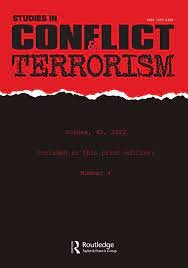Choking points: opium flows, roadblocks and illicit finance in Burma’s Shan State
The flow of opium presented unique opportunities and challenges for the Burmese armed groups interested in profiting from its concentrated wealth. In this working paper, John Buchanan explores the emerging features of armed group predation tied to the explosive growth of Shan State’s opium sector from the 1950s to the 1990s.
The border business: a political economy analysis of checkpoint taxation in Afghanistan
Checkpoints and the transit taxes that can be levied at them have been central to the vagaries of Afghan state formation and conflict—and are crucial to understand the rise to power of the Taliban. In this new working paper Sarajuddin Isar posits that checkpoint taxation is a key means of creating and negotiating rents between state and non-state actors, driving political settlements and conflict.
Roadblocks and revenues: the politics of passage
From Afghanistan and Yemen and from Mali to Somalia, checkpoints are central to dynamics of armed conflict, funding insurgents, driving violence and shaping governance by various types of armed actors, state and non-state alike. A new working paper series on roadblocks and revenues sheds lights on checkpoints in conflict contexts across the world and provides a new window into dynamics of authority and power.
Beyond greed: why armed groups tax
Based on a review of armed group taxation practices, this journal article argues that armed group motives go beyond revenue. It explores explanations related to ideology, legitimacy, institution building, control of populations, and the performance of public authority.
Beyond greed: why armed groups tax
Surveying the existing literature, this ICTD Working Paper argues that a deeper understanding of armed group taxation, the motivations behind it, and the implications it has for an armed group’s relationship with civilian and diaspora populations, as well as the broader international community.





